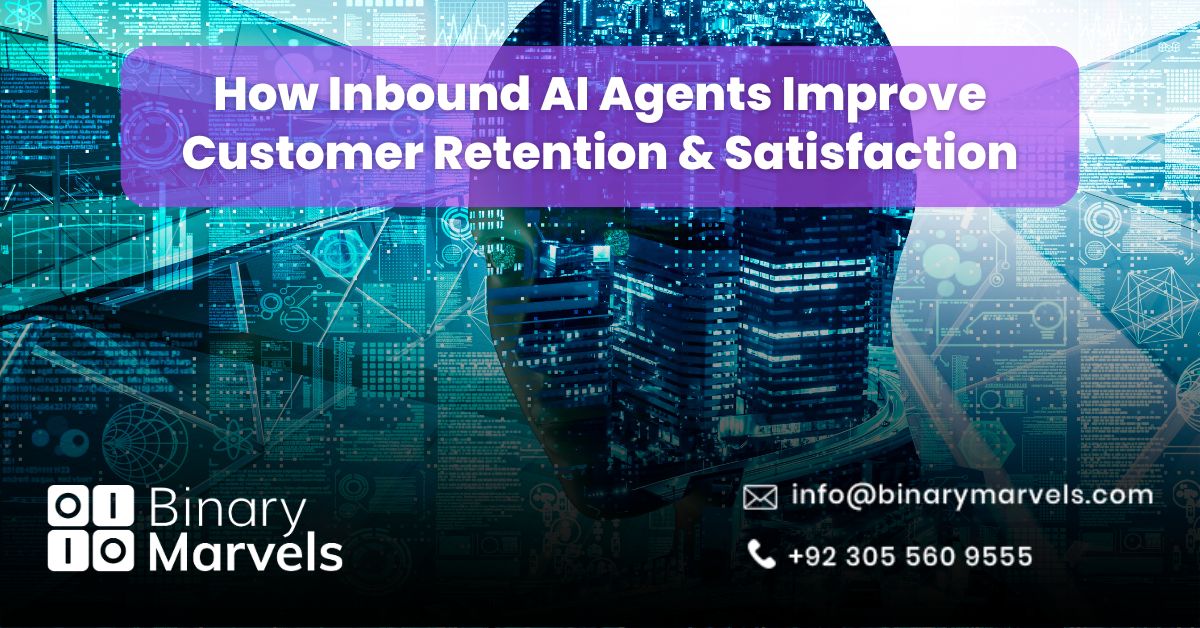
Are AI-powered call agents truly safe when it comes to handling sensitive customer information? As businesses increasingly adopt AI for inbound call management, security & privacy concerns have become more important than ever.
While AI can improve efficiency, reduce wait times, and provide consistent customer service, it also introduces potential risks such as data breaches, unauthorized access, and improper handling of personal information.
Understanding these concerns is crucial for organizations looking to leverage technology while maintaining customer trust and compliance with privacy regulations.
Also Read: Top 10 AI Companies in Pakistan
Understanding Security & Privacy in AI Call Handling
When it comes to inbound AI call handling, security & privacy concerns revolve around how sensitive customer data is collected, processed, and stored. Unlike traditional call centers, AI systems handle large volumes of information automatically, making them attractive targets for cyberattacks. Common risks include unauthorized access to call recordings, data interception during transmission, and misuse of personal information.
Businesses must understand these risks to implement effective safeguards. Proper encryption, secure data storage, and strict access controls are essential to ensure that AI-powered systems handle customer interactions safely. By addressing these concerns proactively, companies can enjoy the benefits of AI technology while maintaining customer trust and regulatory compliance.
Key Security Risks in Inbound AI Call Systems
Inbound AI call systems offer efficiency and scalability, but they also come with specific security risks that businesses must address. One major risk is unauthorized access to sensitive call data, which can occur if proper authentication and access controls are not in place. Another concern is AI voice spoofing or phishing, where malicious actors manipulate AI systems to extract confidential information.
Data retention and storage practices also pose a threat. Improper handling of recorded calls or personal information can lead to breaches or regulatory violations. Additionally, vulnerabilities in AI algorithms or software updates can be exploited if not regularly monitored and patched. Understanding these risks helps businesses implement stronger security measures, ensuring that their AI call systems remain reliable and safe.
Also Read: The Role of NLP and Machine Learning in Inbound AI Call Agents
Privacy Concerns for Customers
Customer privacy is a critical consideration in inbound AI call handling. AI systems often record and analyze conversations, which means personal information such as names, contact details, and account information may be stored. Without proper safeguards, this data could be accessed or misused, putting both customers and businesses at risk.
Compliance with privacy regulations like GDPR and CCPA is essential. Businesses must ensure they obtain clear consent for recording calls and explain how data will be used and stored. Implementing secure data storage, limiting access to sensitive information, and monitoring AI interactions can help protect customer privacy. Using a trusted AI Voice Agent for Inbound Calls can further ensure that privacy measures are built into the system, reducing the likelihood of data breaches or misuse.
Best Practices to Secure Inbound AI Call Handling
To address security & privacy concerns in inbound AI call handling, businesses should implement several best practices. Encrypting call data during transmission and storage ensures that sensitive information remains protected from unauthorized access. Regular security audits and vulnerability assessments help identify potential risks before they can be exploited.
Monitoring AI behavior for anomalies and unauthorized activities can prevent misuse or breaches. Limiting access to call data based on employee roles and implementing strong authentication protocols further strengthens security. Integrating these measures with reliable AI Inbound Call Solutions allows organizations to maintain both efficiency and safety while handling customer interactions.
Regulatory Compliance & Legal Considerations
Ensuring regulatory compliance is essential when using AI for inbound call handling. Businesses must adhere to data protection laws such as GDPR, CCPA, and other local privacy regulations to avoid legal penalties and maintain customer trust. This includes obtaining clear consent from customers before recording calls, informing them how their data will be used, and allowing them to request data deletion if needed.
Maintaining transparent policies and documenting AI interactions can help demonstrate compliance during audits. Choosing AI solutions that prioritize security and privacy ensures that regulatory requirements are met while still leveraging the efficiency and capabilities of modern AI systems.
Also Read: Best Practices for Training Your Inbound AI Call Agent for Accuracy
Choosing the Right AI Call Solution for Security
Selecting a secure AI call solution is crucial for addressing security & privacy concerns in inbound call handling. Businesses should evaluate vendors based on their security standards, data protection policies, and compliance with relevant regulations. Look for solutions that offer encryption, secure data storage, and robust access controls.
It is also important to assess the reliability of the AI system, including how it monitors interactions and handles anomalies. By choosing a trusted Inbound AI Call Agent, organizations can ensure that sensitive customer data is protected while benefiting from the efficiency and scalability of AI-driven call handling.
Supercharge Your Business with AI Today!
As a trusted AI Development Company in Pakistan, we deliver cutting-edge AI Development Services designed to streamline your operations and enhance customer engagement.
Don’t wait—connect with us now and take your business to the next level!
Conclusion
AI-powered inbound call handling offers significant benefits, including faster response times, consistent customer service, and improved operational efficiency. However, it also introduces security & privacy concerns that businesses cannot overlook. Protecting sensitive customer data, complying with privacy regulations, and implementing strong security measures are essential for maintaining trust and avoiding potential risks.
By understanding the key risks, adopting best practices, and choosing reliable solutions such as an AI Inbound Call Solution, organizations can leverage the advantages of AI while keeping customer information safe and secure.
FAQs
What are the main security risks in AI inbound calls?
The primary risks include unauthorized access to call data, AI voice spoofing, data breaches, and vulnerabilities in the AI system that could be exploited by attackers.
How can businesses protect customer data in AI call handling?
Businesses should use encryption, secure storage, role-based access controls, regular security audits, and AI monitoring to safeguard sensitive information.
Are AI voice agents compliant with GDPR?
AI voice agents can be GDPR-compliant if businesses obtain clear consent from customers, securely store data, and follow all relevant data protection regulations.
What makes an AI inbound call solution secure?
A secure solution includes encryption, strong access controls, compliance with privacy laws, reliable AI monitoring, and secure data storage practices.









